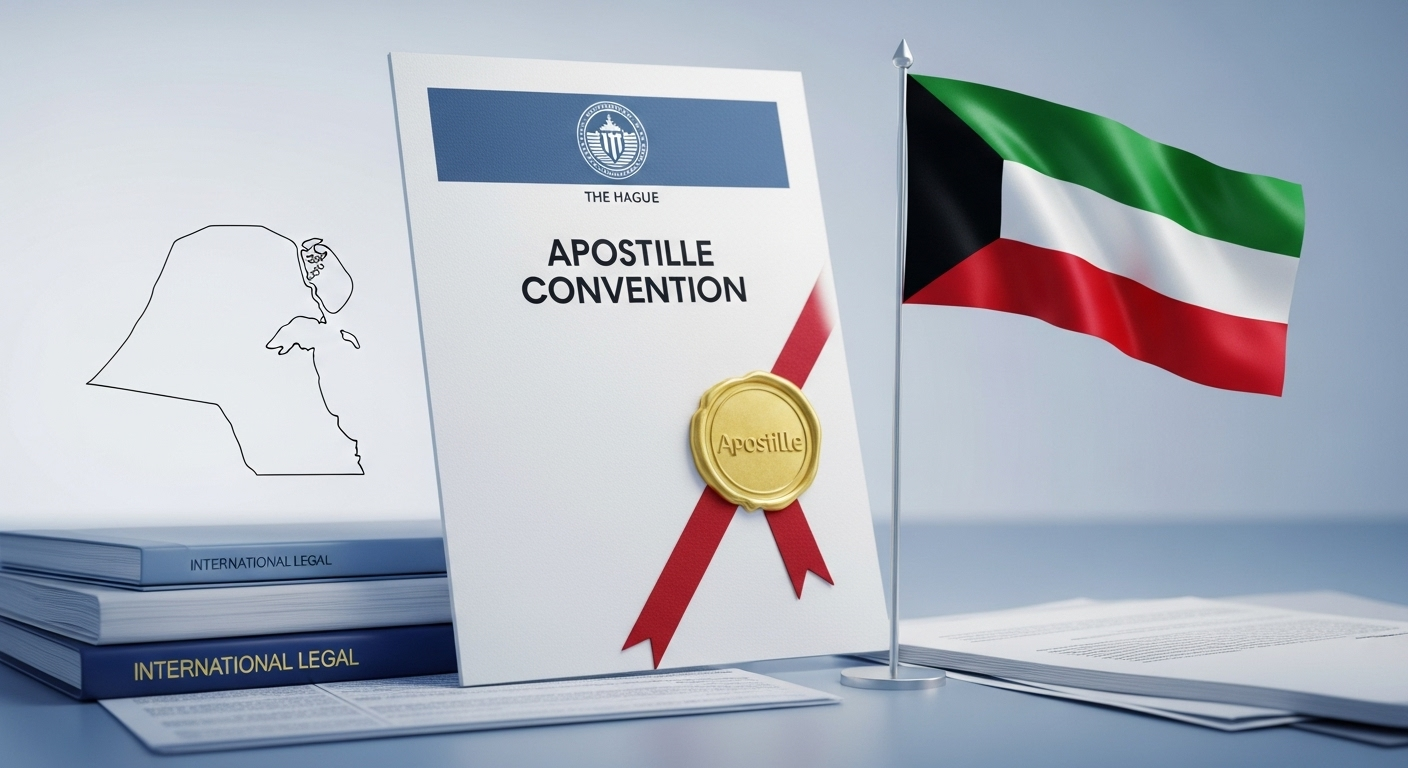
Hague Apostille Convention and Kuwait: What You Need to Know
The Hague Apostille Convention simplifies the process of authenticating documents for international use among member countries. However, since Kuwait is not a member of the Hague Convention, U.S. documents intended for use in Kuwait must go through a different process — embassy or consular legalization. This guide explains the purpose of the Apostille Convention, why it doesn’t apply to Kuwait, and what steps individuals and businesses must follow instead.
What Is the Hague Apostille Convention?
The Hague Apostille Convention, formally known as the Hague Convention of October 5, 1961, abolished the requirement of diplomatic or consular legalization for public documents between member countries.
An apostille certificate issued under this convention serves as proof that a document’s origin and signature are valid for international recognition.
Common examples of documents eligible for an apostille in member countries include:
-
Birth, marriage, and death certificates
-
Academic transcripts and diplomas
-
Corporate documents such as certificates of incorporation
-
Power of attorney and legal contracts
In countries that are part of the convention, a document bearing an apostille can be used directly without any further authentication.
Kuwait and the Apostille Convention
Kuwait is not a signatory to the Hague Apostille Convention. This means that documents from the United States cannot be accepted in Kuwait with an apostille alone. Instead, all U.S.-issued documents must undergo full legalization through a series of official steps involving both U.S. and Kuwaiti authorities.
Why Kuwait Requires Embassy Legalization Instead
Since Kuwait is not part of the Hague system, its government relies on embassy or consular legalization to ensure the authenticity of foreign documents. This process provides:
-
Verification of authenticity of signatures and seals
-
Compliance with Kuwaiti legal and administrative standards
-
Credibility for use in official procedures such as visa applications, employment, education, and business registration
The Legalization Process for Documents Going to Kuwait
For U.S. documents to be accepted in Kuwait, they must go through the following stages:
-
Notarization – If applicable, the document must be notarized by a licensed U.S. notary public.
-
State Authentication – The document is then certified by the Secretary of State in the state where it was issued.
-
U.S. Department of State Authentication – Federal authentication confirms the legitimacy of the state seal or notary signature.
-
Kuwait Embassy or Consulate Legalization – Finally, the Kuwait Embassy in Washington, D.C., or a Kuwaiti consulate legalizes the document for official use in Kuwait.
Common Documents Requiring Legalization for Kuwait
-
Personal documents (birth, marriage, medical, or academic certificates)
-
Business documents (commercial invoices, certificates of origin, and articles of incorporation)
-
Government-issued certificates (FDA, USDA, USPTO, or FBI documents)
Why It Matters to Follow the Correct Process
Submitting an apostille instead of a legalized document can result in:
-
Delays in visa or employment processing
-
Rejection of educational or professional credentials
-
Invalidation of contracts and agreements in Kuwait
Ensuring that your documents are properly authenticated and legalized saves time and prevents administrative complications.
